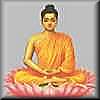
The Gospel of Buddha
Preface
by Paul Carus
Introduction
Rejoice
Samsara and Nirvana
Truth the Saviour
Prince Siddhattha becomes Buddha
The Bodhisatta's Birth
The Ties of Life
The Three Woes
The Bodhisatta's Renunciation
King Bimbisara
The Bodhisatta's Search
Uruvela, the Place of Mortification
Mara, the Evil One
Enlightenment
The First Converts
Brahma's Request
The Foundation of the Kingdom of Righteousness
Upaka
The Sermon at Benares
The Sangha
Yasa, the Youth of Benares
Kassapa
The Sermon at Rajagaha
The King's Gift
Sariputta and Moggallana
Anathapindika
The Sermon on Charity
Jetavana
The Three Characteristics and the Uncreate
The Buddha's Father
Yasodhara
Rahula
Consolidation of the Buddha's religion
Jivaka, the Physician
The Buddha's Parents Attain Nirvana
Women Admitted to the Sangha
The Bhikkhus' Conduct Toward Women
Visakha
The Uposatha and Patimokkha
The Schism
The Re-establishment of Concord
The Bhikkhus Rebuked
Devadatta
Name and Form
The Goal
Miracles Forbidden
The Vanity of Worldliness
Secrecy and Publicity
The Annihilation of Suffering
Avoiding the Ten Evils
The Preacher's Mission
The Teacher
The Dhammapada
The Two Brahmans
Guard the Six Quarters
Simha's Question Concerning Annihilation
All Existence is Spiritual
Identity and Non-Identity
The Buddha Omnipresent
One Essence, One Law, One Aim
The Lesson Given to Rahula
The Sermon on Abuse
The Buddha Replies to the Deva
Words of Instruction
Amitabha
The Teacher Unknown
Parables and Stories
Parables
The Widow's Two Mites and the Parable of the Three Merchants
The Man Born Blind
The Lost Son
The Giddy Fish
The Cruel Crane Outwitted
Four Kinds of Merit
The Light of the World
Luxurious Living
The Communication of Bliss
The Listless Fool
Rescue in the Desert
The Sower
The Outcast
The Woman at the Well
The Peacemaker
The Hungry Dog
The Despot
Vasavadatta
The Marriage-Feast in Jambunada
A Party in Search of a Thief
In the Realm of Yamaraja
The Mustard Seed
Following the Master Over the Stream
The Sick Bhikkhu
The Patient Elephant
The Last Days
The Conditions of Welfare
Sariputta's Faith
Pataliputta
The Mirror of Truth
Ambapali
The Buddha's Farewell Address
The Buddha Announces His Death
Chunda, the Smith
Metteyya
The Buddha's Final Entering into Nirvana
Conclusion
The Three Personalities of the Buddha
The Purpose of Being
The Praise of All the Buddhas
Click here to go The Reluctant Messenger (Host Site)
The Gospel of Buddha
The Lesson Given to Rahula
Before Rahula, the son of Gotama Siddhattha and Yasodhara,
attained to the enlightenment of true wisdom,
his conduct was not always marked by a love of truth,
and the Blessed One sent him to a distant vihara
to govern his mind and to guard his tongue. [1]After some time the Blessed One repaired to the place,
and Rahula was filled with joy. [2]And the Blessed One ordered the boy
to bring him a basin of water
and to wash his feet,
and Rahula obeyed. [3]When Rahula had washed the Tathagata's feet,
the Blessed One asked:
"Is the water now fit for drinking?" [4]"No, my Lord," replied the boy, "the water is defiled." [5]
Then the Blessed One said:
"Now consider thine own case.
Although thou art my son,
and the grandchild of a king,
although thou art a samana
who has voluntarily given up everything,
thou art unable to guard thy tongue from untruth,
and thus defilest thou thy mind." [6]And when the water had been poured away,
the Blessed One asked again:
"Is this vessel now fit
for holding water to drink?" [7]"No, my Lord," replied Rahula,
"the vessel, too,
has become unclean." [8]And the Blessed One said:
"Now consider thine own case.
Although thou wearest the yellow robe,
art thou fit for any high purpose
when thou hast become unclean like this vessel?" [9]Then the Blessed One,
lifting up the empty basin
and whirling it round, asked:
"Art thou not afraid
lest it should fall and break?" [10]"No, my Lord," replied Rahula,
"the vessel is but cheap,
and its loss will not amount too much." [11]"Now consider thine own case," said the Blessed One.
"Thou art whirled about in endless eddies of transmigration,
and as thy body is made of the same substance
as other material things that will crumble to dust,
there is no loss if it be broken.
He who is given to speaking untruths
is an object of contempt to the wise." [12]Rahula was filled with shame,
and the Blessed One addressed him once more:
"Listen, and I will tell thee a parable: [13]"There was a king who had a very powerful elephant,
able to cope with five hundred ordinary elephants.
When going to war, the elephant was armed
with sharp swords on his tusks,
with scythes on his shoulders,
spears on his feet, and an iron ball at his tail.
The elephant-master rejoiced to see the noble creature so well equipped,
and, knowing that a slight wound by an arrow in the trunk would be fatal,
he had taught the elephant to keep his trunk well coiled up.
But during the battle the elephant stretched forth his trunk to seize a sword.
His master was frightened and consulted with the king,
and they decided that the elephant was no longer fit
to be used in battle. [14]"O Rahula! if men would only guard their tongues all would be well!
Be like the fighting who guards his trunk
against the arrow that strikes in the center. [15]"By love of truth the sincere escape iniquity.
Like the elephant well subdued and quiet,
who permits the king to mount on his trunk,
thus the man that reveres righteousness
will endure faithfully throughout his life." [16]Rahula hearing these words was filled with deep sorrow;
he never again gave any occasion for complaint,
and forthwith he sanctified his life by earnest exertions. [17]End Chapter 56
[Previous] [Next]
01 | 02 | 03 | 04 | 05 | 06 | 07 | 08 | 09 | 10 | 11 | 12 | 13 | 14 | 15 | 16 | 17 | 18 | 19 | 20 | 21 | 22 | 23 | 24 | 25 | 26 | 27 | 28 | 29 | 30 | 31 | 32 | 33 | 34 | 35 | 36 | 37 | 38 | 39 | 40 | 41 | 42 | 43 | 44 | 45 | 46 | 47 | 48 | 49 | 50 | 51 | 52 | 53 | 54 | 55 | 56 | 57 | 58 | 59 | 60 | 61 | 62 | 63 | 64 | 65 | 66 | 67 | 68 | 69 | 70 | 71 | 72 | 73 | 74 | 75 | 76 | 77 | 78 | 79 | 80 | 81 | 82 | 83 | 84 | 85 | 86 | 87 | 88 | 89 | 90 | 91 | 92 | 93 | 94 | 95 | 96 | 97 | 98 | 99 | 100 | Preface

Compiled from ancient records by Paul Carus, 1894
$3.99 Kindle eBook
Buy from Amazon.com

